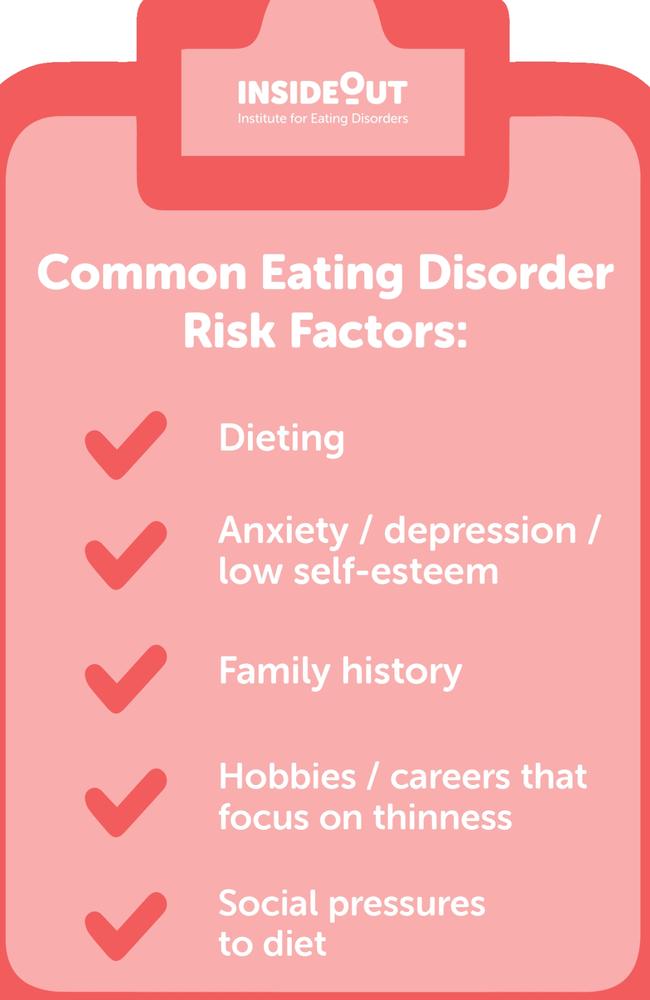Anorexia: New Australian Eating Disorder Strategy and Research Centre announced
Liam Manning nearly died from anorexia, but never knew he had it. Now Australia is about to treat the nation’s most deadly mental illness in a new way. WARNING: Graphic

National
Don't miss out on the headlines from National. Followed categories will be added to My News.
Liam Manning’s heart rate was driven so low by his anorexia he almost died, but doctors and his mates did not believe boys could get the condition.
“I never thought, even when I was in hospital, I never thought that I had an illness,” he said.
The 23-year-old software developer is one of 1.2 million Australians with an eating disorder and he’s welcomed the first ever national strategy to combat the illness, launched today.
Eight Australians a week die from anorexia making it the most deadly mental illness in the country and 25,000 Australians are currently living with it.
Yet eating disorders receive the least amount of finding of any mental illness and most doctors don’t recognise them or understand how to treat them.
Seventy per cent of people with an eating disorder will not receive treatment and, of those who do, only 20 per cent receive an evidence-based treatment, according to the InsideOut Institute at the University of Sydney.

Health Minster Greg Hunt announced an Australian Eating Disorder Research and Translation Strategy developed under a $4 million federal grant by the InsideOut Institute, identifies the top 10 priority areas in greatest need of additional research.
The Federal budget includes $13 million to create a National Eating Disorders Research Centre.
“Strengthening eating disorder research and translation in Australia will ensure that we find and deliver the latest and best possible support for those impacted and their families and carers.
“It will lead to significant improvements in the wellbeing of those with an eating disorder and, most importantly, will save lives,” Mr Hunt said.

“We know that early intervention can prevent severe illness, we know that many people can fully recover if they get the right therapy at the right time,” said the Director of the InsideOut Institute at the University of Sydney Dr Sarah Maguire.
“But unless we discover the right treatments through research and translate them into the right therapies received at the right time, people don’t and won’t recover,” she said.

REALITY OF LIVING WITH AN EATING DISORDER
Liam developed his eating disorder at the age of 10 when schoolmates teased him about being chubby and he started throwing away his lunch to lose weight.
He began to obsessively control his eating, he later began exercising compulsively and by the age of 17 he weighed the same as he had when he was in year 5.
He was collapsing and had critically low heart rate and blood pressure level.
“I went to a hospital and one of the good doctors there did an ECG on me and just told me that you know they’re really concerned that you could die at any minute,” he said.
“I got well in spite of the healthcare system, rather than because of it. Even the clinic that I went to, we had the nurse unit manager tell me that I’m going to live with this for the rest of my life. I’m never going to recover. I’ll be back here again.”
It was only when he found a good psychologist in Newcastle, north of Sydney, who treated the condition as a mental illness and addressed his self-esteem issues that Liam began his recovery.
The Inside Out Institute for Eating Disorders, which is behind the new strategy, is calling for the creation of permanent professorial chairs of eating disorders at universities and Research Centres of Excellence to drive study into the little understood conditions.
The conditions often aren’t recognised by parents and even doctors and there is significant stigma and stereotyping associated with them, the institute said.
Also, there is insufficient research into the best ways to prevent, detect and treat them.
Liam said the most important thing to know about an eating disorder is not everyone who has one is extremely thin.
“People can be living with life threatening, eating disorders like bulimia and look just like anybody else, eating disorders come in all shapes and sizes,” he said.





